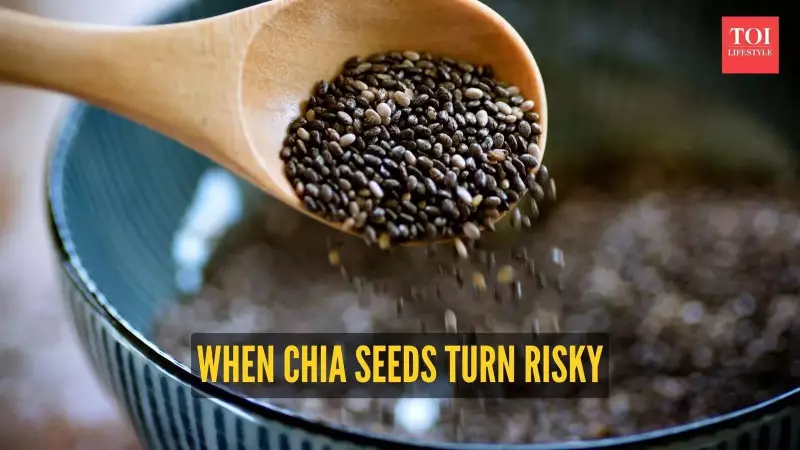
Chia seeds have taken the health and wellness world by storm, celebrated as a nutritional powerhouse packed with omega-3s, fiber, and protein. But before you add another spoonful to your smoothie, there's a crucial health warning you need to hear.
A leading medical professional is sounding the alarm about the potential dangers of chia seeds for certain individuals. While they're widely promoted as a superfood, they're definitely not for everyone, and for some people, they could actually pose serious health risks.
The Hidden Dangers of Chia Seeds
What makes these tiny seeds potentially problematic? Their incredible ability to absorb water—up to 10-12 times their weight—can become a digestive nightmare for some people. When consumed without proper hydration, chia seeds can form a gel-like substance that may cause:
- Severe digestive blockage and constipation
- Intense bloating and abdominal discomfort
- Risk of choking if not consumed with enough liquid
- Medication interference due to high fiber content
Who Should Completely Avoid Chia Seeds?
According to medical experts, these groups should think twice before consuming chia seeds:
- People with swallowing difficulties or esophageal issues
- Individuals with digestive disorders like IBS, Crohn's disease, or diverticulitis
- Those taking specific medications that could interact with high fiber
- People with low blood pressure as chia seeds may lower it further
- Anyone allergic to mustard seeds or sesame seeds due to cross-reactivity risks
Safe Consumption Guidelines
If you don't fall into the high-risk categories, you can still enjoy chia seeds safely by following these expert tips:
- Always soak chia seeds for at least 30 minutes before consuming
- Start with small quantities (1 teaspoon) and monitor your body's response
- Drink plenty of water throughout the day when consuming chia seeds
- Consult your doctor if you have any pre-existing health conditions
The bottom line? While chia seeds offer impressive nutritional benefits for many, they're not the universal health solution they're often made out to be. Your safety comes first—know your body, understand the risks, and always prioritize your personal health needs over food trends.





